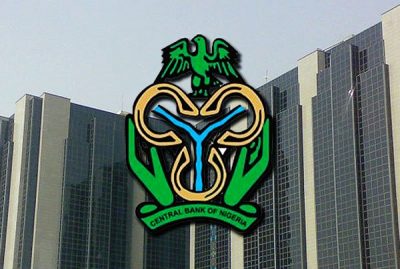CBN investigating accounts of palm oil smugglers
The Economic Intelligent Department of the Central Bank of Nigeria (CBN) has started investigating the accounts of those who are involved in smuggling or dumping palm oil into Nigeria.
This disclosure was made by the Governor of the CBN Mr. Godwin Emefiele when he met with stakeholders in the palm oil business in Abuja on Friday.
Emefiele said the apex bank was working on a Presidential directive which has ordered the CBN to expand and give support to people who want to expand the production of selected products in Nigeria and also blacklist them from the foreign exchange market and the banking industry.
At the end of the investigation of the CBN’s Economic Intelligence Departmental, Emefiele warned that “firms, their owners and their top management caught smuggling or dumping palm oil or any of the restricted 43 items into Nigeria will be blacklisted from banking activities.
He hinted that the CBN already knows those who are smuggling and dumping palm oil into Nigeria but the CBN “feels that before any action is taken against you, in terms of blocking you from the foreign exchange market or blacklisting you from doing banking in Nigeria that we must invite you to say that we are drawing a line, that importation of palm oil in Nigeria must stop. Stopping it also means that we as central bank and the deposit money banks will create an opportunity for you to access credit to grow your plantations and we are saying that we will not allow any further importation of palm oil into Nigeria, we must create jobs in our rural communities.”
The presidential directive that the CBN received Emefiele said, “is not for palm oil alone, we have received presidential directive to focus on the production of ten different commodities to be embarked on in the next couple of years, the products include; rice, maize, cassava, tomatoes, cotton, and the entire textile value chain, oil palm, poultry, fish, livestock dairy and cocoa.”
Emefiele also disclosed that the apex bank has disbursed the first tranche of N30 billion for the palm oil industry.
He drew stakeholders attention to the fact that “the train has moved, if you want to benefit from this revolution please run fast, because the train is moving fast but those who feel they want to use foreign exchange to do different thing, it is not through palm oil or vegetable oil importation any longer.”
This next phase of support the CBN Governor said “will focus on those who are coming into the oil business newly, working through their banks we will also extend credit facilities to them and of course, that will also have the out-growers scheme programs as well.”
He stated that he knows “some of you who are importing and we are going to block all your accounts, so I am advising you, because in the past, the local oil producers like the Presco, Okomu, have been looking for ways to stop you from exporting but you have refused to listen, but this time you must listen because we need to create jobs in Nigeria.”
Edo state governor Mr Godwin Obaseki said “Edo state intends to follow the central bank intervention with a policy “to agree on the framework for our MOU, we have samples, instead of concessions, we want to agree on the competitive bidding arrangements for lands and the farmland access agreement which will include how to entertain smallholder farmers.”
Specifically, on the lands, he said the state government is “working on how to acquire lands, how to survey the lands, how to issue the titles on an accelerated basis, instead of charges that will apply through the period of ownership. We are going to hold a land summit where we will discuss with the investors who have shown interest and we hope that by the 30 of July, their locations will be done.”
The land acquisition process he said “will include dealing with expression of interest, we have received expression from about 10 investors till date and enumeration of economic trees and compensation that needs to be paid, fortunately, most of the lands we are giving are government reserved that have been badly degraded. So the title for these lands resides in government, but some people have been farming on the land over the years, so they may need to be compensated for the crops.” (The Nation)


